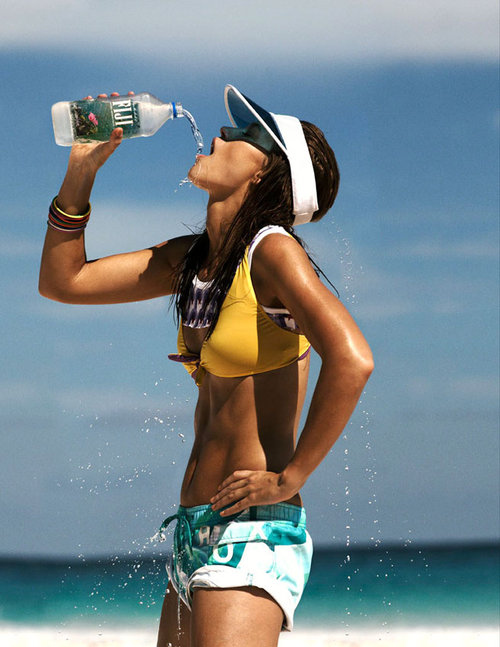Benefits for weight loss (and more!)

Drinking water is one of the most fundamental basics of ana and weight loss in general. Here are some of the benefits.

- Water suppresses hunger.
Your mind often mistakes thirst for hunger. When you are hungry, always drink water first! Even if you really ARE hungry, not thirsty, water will suppress your appetite further. Chugging water quickly might even make you too nauseated or full to eat. - Water fills you up faster.
Sip water between bites to fill up faster from the same food. This also helps you pause while eating, which can help if you have a history of binging or eating too fast. Also, if you do purge, sipping water between bites while binging will help make the food easier to purge later. But maybe it will slow you down enough you won’t even feel the need to purge. - Water may increase calorie burn! Very limited studies show some evidence that the body burns calories immediately after drinking water. There is evidence especially that drinking cold water causes the body to expend calories to create warmth in response to the cold. It’s probably a fairly negligible amount of calories tbh, but any calorie burned is a bonus, especially with all the other benefits.
- Water is essential to burn fat! The process of burning fat, lipolysis, requires water. Make sure you are hydrated to maximize your fat burning. Between the lipolysis and potential increase in calorie burn, drinking water can boost your metabolism.
- Fluid pushes fluid. Drinking more water will help keep you from retaining water. Of course other factors influence this, especially if you are very underweight or have other ED factors like malnutrition or laxative abuse, but overall, drinking enough water will remove dehydration as a cause for retaining water weight and give you a better idea of your real weight.
- Water is essential for brain function. All the chemicals and electrical signals in your brain are conducted through fluid which mainly consists of water. Drinking water is absolutely necessary, especially since restriction and fasting can cause brain fog. We don’t want any unnecessary strains on our thinking.
- Water clears waste and purifies the body. Water is necessary to carry waste products out of your body, removing toxins and making you more pure and clean. Dehydration can contribute to constipation as well, so before you go for laxatives, make sure you are getting enough water. It is especially necessary to hydrate before, during, and after workouts. Sweating removes impurities and toxins, so you want to sweat a lot to get that crap out of your body, and replace that fluid with fresh clean water. Toxins are excreted through liquid and solid waste and the skin via sweating, all of which require water. Drink enough to facilitate that process, you don’t want toxins building up in your body. There are lots of fake “cleanses” and “detoxes” out there; all you really need is water.
- Water replaces higher-calorie drinks. This may be a weight loss benefit for normies who are used to chugging hundreds of calories of full-sugar soda and juice without a thought, but as anas you should already have broken the calorie-drink habit. However I thought I’d include this tip here just to be more complete. If you still crave juice, try diluting a small amount in water. Honestly though, unless you prefer to get your calories/meals in liquid form like smoothies or protein mixes (some people find this easier than eating) you really should be drinking minimal calories. If you do consume liquid calories, think of it like a food, and always make it a carefully considered choice like all your other calories.

Tips for getting enough water:
Get cute water bottles or cups. This really makes drinking water more pleasant and fun for me. You can choose the style that works best for you: an open cup, pop-up straw, spout, open mouth water bottle, cup with straw, coffee spout….whatever feels clean and makes you comfortable. Personally I love Hello Kitty water bottles!

Fill multiple water bottles and cups and leave them around so there is always one within reach. When you need to refill it, remember that is an excuse to get more steps in.
Drink from your water bottle every time you see it. Sipping throughout the day is better than drinking full glasses. You absorb more and it keeps you more hydrated. So just take a sip whenever you notice your water.
Track water in your calorie/fitness tracker. To make this easier, consider getting a water bottle with measurements marked on it.

Make your water more interesting with water enhancers like Mio, Crystal Light, or Waterdrop; or make your own infusions with natural fruits and herbs. Some even have health benefits.

Anyway I hope this inspires you to drink more water and explains some of the reasons behind it. Most importantly, NEVER restrict water!! Always drink water when fasting!! Restricting water is extremely dangerous with no benefit. Humans can survive weeks or months without food, but only days without water. It will destroy your body and mind very quickly. If you want to be thin, water is your friend.

